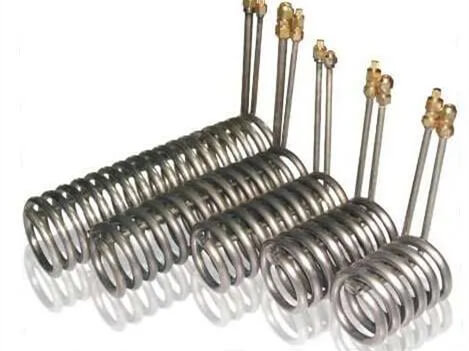In the realm of industrial applications and home heating systems, the choice of materials for piping plays a critical role in efficiency, durability, and overall performance. Among the plethora of materials available, titanium stands out as a remarkable option, particularly in the domain of heating pipes.
Understanding Titanium Heating Pipes
Titanium, a lustrous transition metal renowned for its exceptional strength-to-weight ratio and corrosion resistance, has long been revered in diverse fields such as aerospace, medicine, and chemical processing. Leveraging these inherent properties, titanium heating pipes offer a myriad of benefits in heating applications.
Unparalleled Strength and Durability
One of the foremost advantages of titanium heating pipes is their unparalleled strength and durability. Titanium boasts a tensile strength comparable to that of steel but at around half the weight, making it an ideal candidate for applications where weight reduction is crucial without compromising structural integrity. This inherent robustness ensures longevity, minimizing the need for frequent replacements and maintenance, thereby reducing operational costs in the long run.
Corrosion Resistance: A Game Changer
Corrosion poses a significant challenge in heating systems, particularly in environments with high temperatures, moisture, and aggressive chemicals. Unlike conventional materials like steel or copper, titanium exhibits exceptional corrosion resistance, even in the most hostile environments. This inherent resistance to corrosion ensures the longevity of heating systems, making titanium heating pipes a reliable choice for industrial and residential applications alike.
Thermal Conductivity and Efficiency
Efficiency is paramount in heating systems, where every unit of energy expended translates into comfort or productivity. Titanium’s excellent thermal conductivity ensures rapid and efficient heat transfer, enabling heating systems to reach desired temperatures swiftly while minimizing energy consumption. This property is particularly advantageous in applications where responsiveness and energy efficiency are paramount, such as HVAC systems, radiant floor heating, and industrial processes.
Lightweight and Versatile
Despite its exceptional strength, titanium is remarkably lightweight, offering ease of installation and handling—a crucial consideration in both industrial and residential settings. Moreover, titanium’s versatility allows for customization to meet specific requirements, including varying diameters, lengths, and configurations, making it suitable for a wide array of heating applications, ranging from large-scale industrial processes to intricate residential heating systems.
Applications Across Industries
The versatility and superior properties of titanium heating pipes render them indispensable across various industries:
Aerospace and Defense
In aerospace and defense applications, where weight reduction, corrosion resistance, and durability are paramount, titanium heating pipes find extensive use in aircraft heating systems, fluid transfer, and ground support equipment.
Chemical Processing
Chemical processing facilities, characterized by harsh environments and corrosive substances, benefit immensely from the corrosion resistance of titanium heating pipes, ensuring reliable and efficient operation in critical processes such as heat exchangers, reactors, and distillation columns.
Pharmaceutical and Biotechnology
In pharmaceutical and biotechnology industries, where stringent hygiene standards and corrosion resistance are imperative, titanium heating pipes play a vital role in heating and sterilization processes, ensuring product quality and regulatory compliance.
Residential Heating Systems
In residential heating systems, titanium heating pipes offer homeowners a durable and efficient solution for radiant floor heating, hot water distribution, and underfloor heating, enhancing comfort and energy efficiency while minimizing maintenance requirements.
Environmental Sustainability
Beyond their technical advantages, titanium heating pipes contribute to environmental sustainability by virtue of their longevity, energy efficiency, and recyclability. Their durability reduces the frequency of replacements, thereby minimizing resource consumption and waste generation. Additionally, their energy efficiency helps reduce greenhouse gas emissions associated with heating systems, contributing to mitigating climate change.
In conclusion, titanium heating pipes represent a paradigm shift in heating system design and construction, offering unmatched strength, durability, corrosion resistance, and thermal conductivity. From aerospace to residential applications, the versatility and superior properties of titanium heating pipes make them an indispensable component of modern heating systems, driving efficiency, reliability, and sustainability across industries. As we continue to innovate and advance, titanium heating pipes stand as a testament to the remarkable potential of materials science in shaping the future of heating technology.
